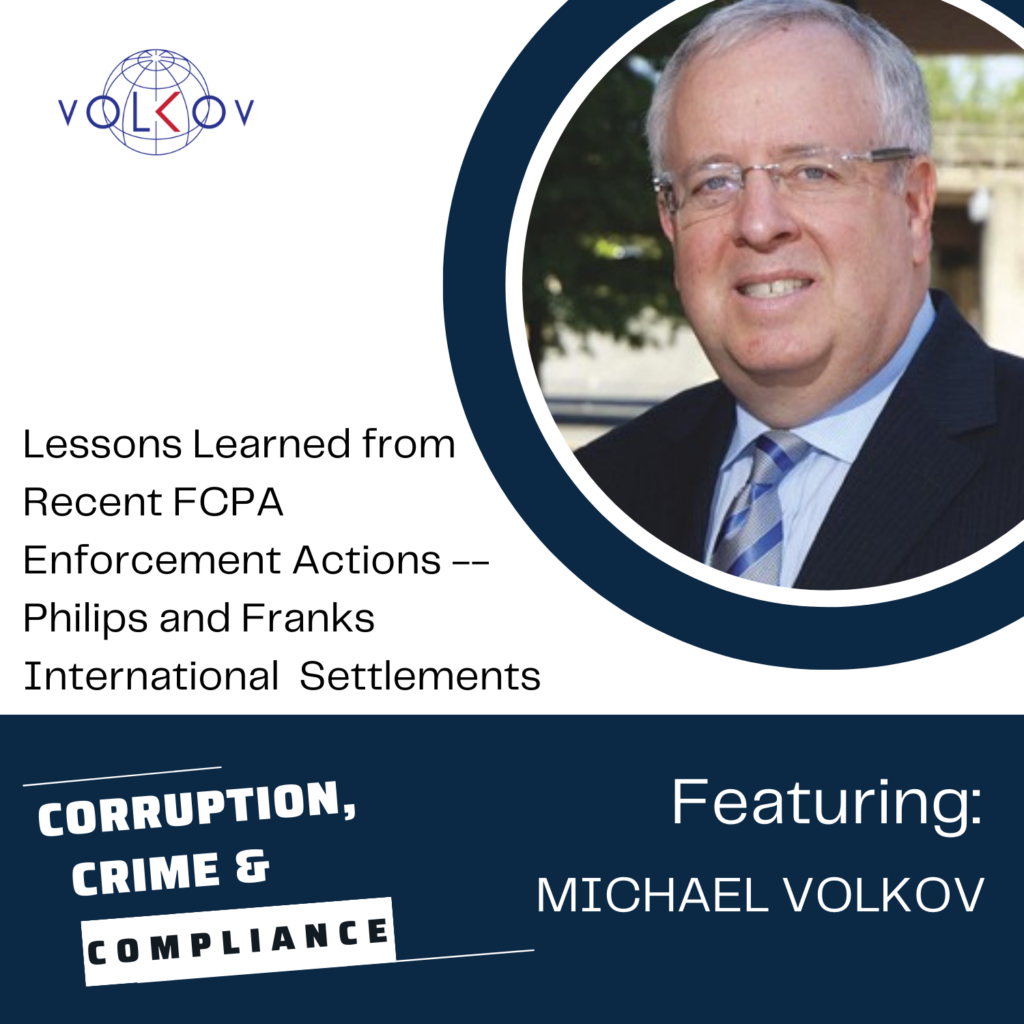
Koninklijke Philips manipulated tender processes for medical imaging equipment in China, which resulted in a substantial $62 million fine. On the other hand, Frank’s International paid an $8 million settlement for its FCPA violations in Angola, involving questionable commissions to a sales agent. These two cases serve as potent reminders of the risks and challenges that global companies encounter in today’s globalized economy, especially when dealing with high-risk countries such as China and Angola. They underline the need for robust ethics and compliance programs, vigilance against bribery and corruption, and strict adherence to local and international laws. In this episode of Corruption, Crime and Compliance, Michael Volkov uncovers the details of these cases that underline the risks and challenges faced by global companies in the contemporary economy.
You’ll hear Michael talk about:
- Koninklijke Philips, a Dutch multinational corporation, was penalized with a $62 million fine for contriving multiple schemes to manipulate tender processes for medical imaging equipment in China.
- These schemes included strategies like the manipulation of technical specifications, creation of counterfeit bids, and direct payments to state-owned hospital officials in China to restrict competition.
- Frank’s International, an oil and gas company, paid an $8 million settlement for FCPA violations in Angola. The company had been paying commissions to a sales agent in Angola, knowing there was a high likelihood that these funds would be used to bribe government officials.
- Frank’s International exhibited a lack of adequate internal accounting controls during this time period. This oversight permitted corrupt practices to proceed undetected.
- Angola requires international companies to engage with local businesses. In Frank’s case, this was used as a cover to facilitate bribery payments.
- Frank’s International was informed by a senior Sonangola executive that a restriction against them could be lifted if Frank’s established a separate consulting company benefiting a high-ranking Sonangola official and offered 5% of the contract value to this company.
- The cases highlight how crucial it is for companies operating in high-risk countries, such as Angola and China, to have comprehensive ethics and compliance programs in place.
- These programs must be able to detect and prevent bribery schemes, manipulation of tender processes, and similar malpractices.
- The financial records of these companies must accurately represent all transactions and should be reviewed regularly to detect and rectify discrepancies.
- Companies should maintain a cooperative attitude with regulatory authorities, report potential violations, and take remedial actions for any identified issues.
KEY QUOTES:
“Koninklijke Philips played a dangerous game manipulating tender processes in China. The $62 million fine they paid is a stark reminder of the consequences.” – Michael Volkov
“Frank’s International’s $8 million settlement is a potent example of what can happen when companies ignore the necessity of robust internal accounting controls.” – Michael Volkov
“Operating in high-risk countries demands more than just good business sense. It requires stringent ethics and compliance programs to prevent disastrous legal and economic consequences.” – Michael Volkov
Resources:





